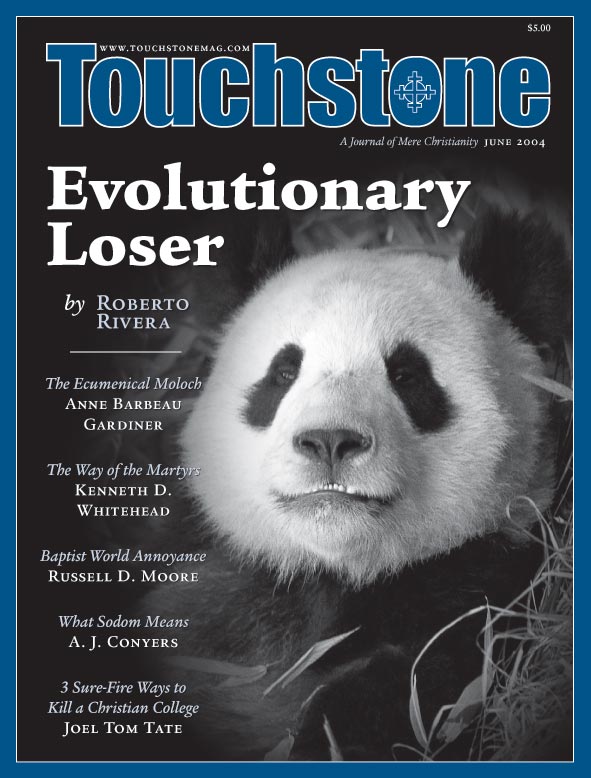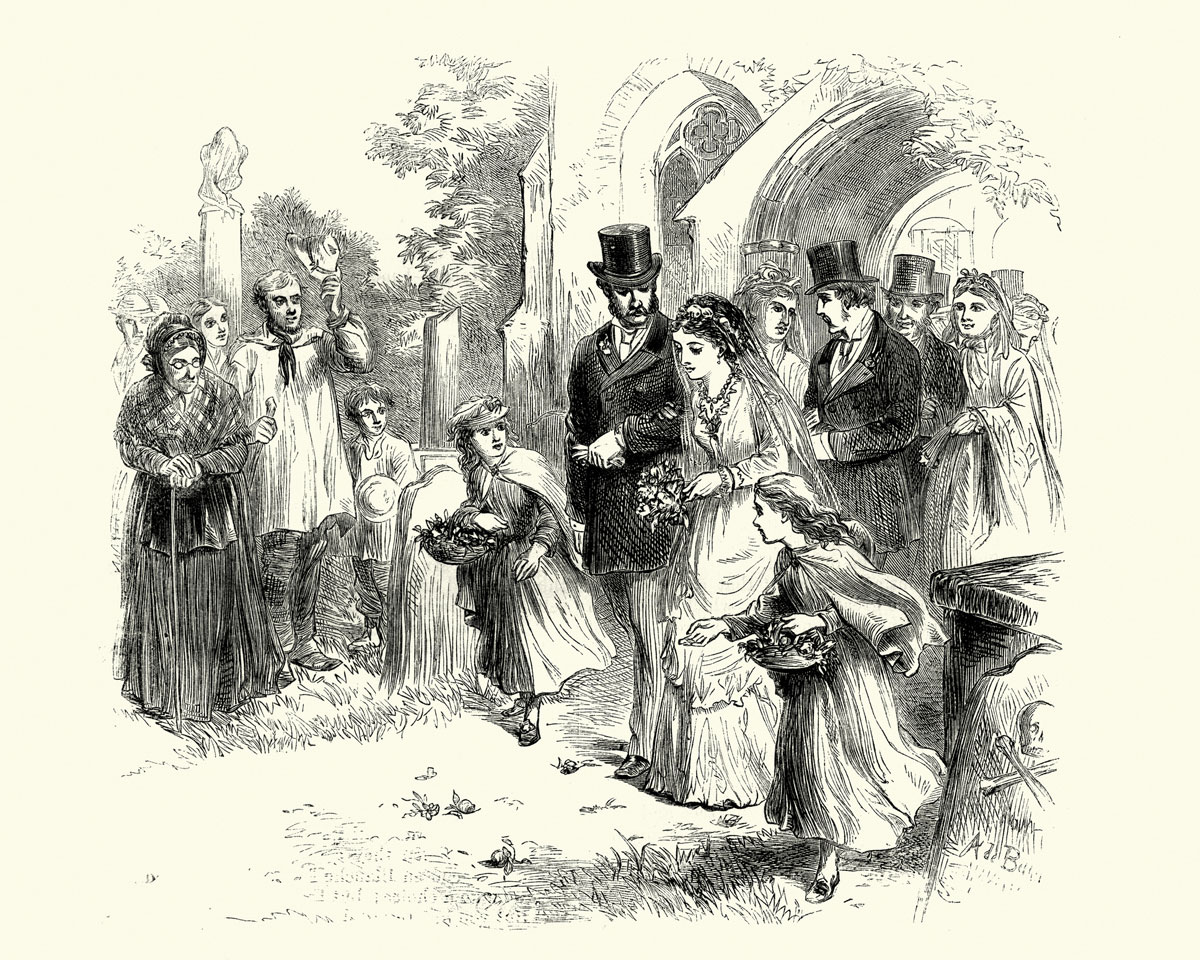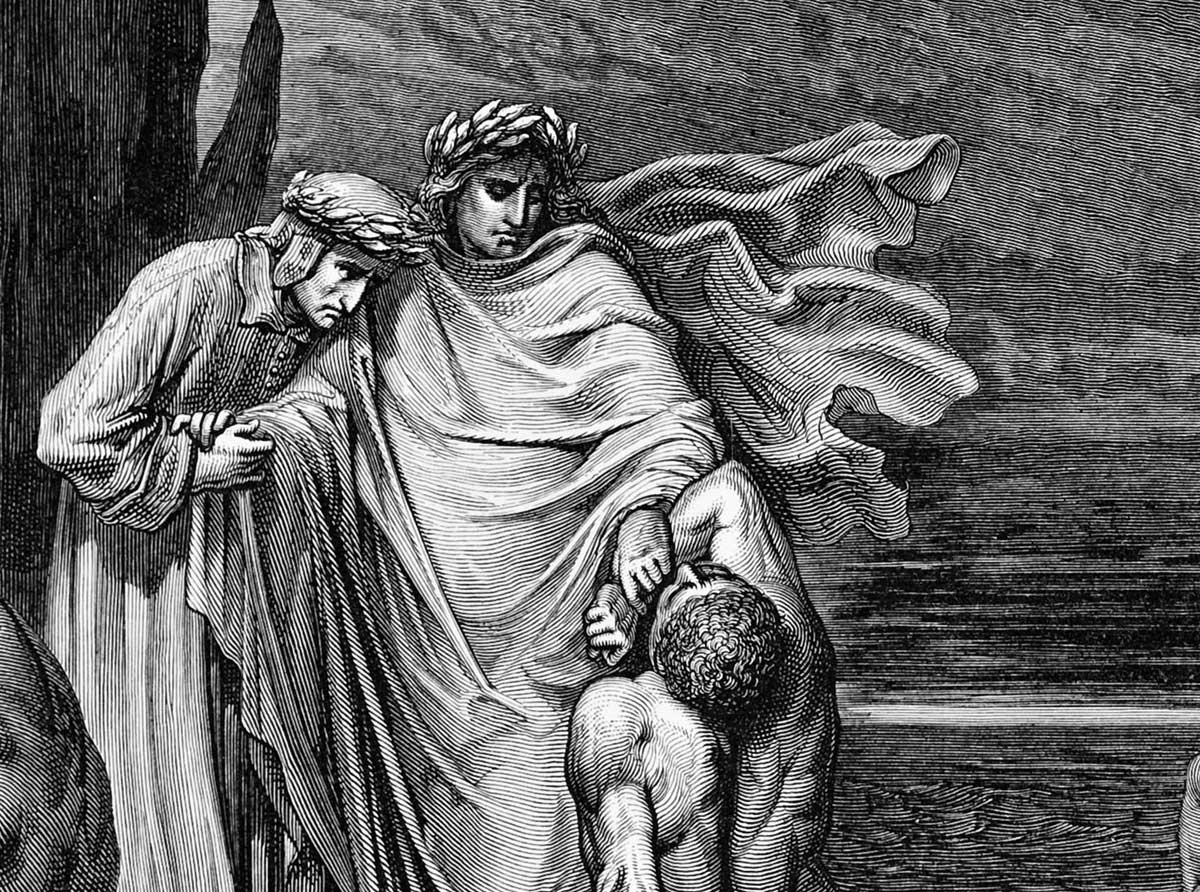View
As Bad As We Get
A. J. Conyers on Homosexuality as a Sign of Ultimate Corruption
Apologists for the “gay community” who attempt to harmonize their sexual agenda with Christianity take comfort in the rarity of explicit prohibitions of homosexual acts and declare them unrepresentative of the biblical teaching. (But then, one would be hard-pressed to find such prohibitions of fraud, prostitution, child abuse, slave trading, sexual harassment, price fixing, lynching, racial discrimination, and any number of acts for which no one needs to find express prohibition in the Bible to be convinced that Scripture is against them.)
In this debate, one side maintains that homosexual behavior is not compatible with biblical teaching, while the other side holds that it is in harmony with—indeed approval is demanded by—the theme of love and inclusiveness in the New Testament. The latter sometimes claim to side with Jesus against Paul, since Jesus at least does not mention homosexuality while Paul does. But there they have a problem, for Paul makes the case for inclusiveness most explicitly, and Jesus spoke explicitly about what would happen to those who taught against the law. They want to embrace Paul’s teachings on inclusiveness while rejecting his other teachings, and take heart from what the Gospels neglect to mention while ignoring what they do.
The Biblical Pattern
Given these arguments, what is more needed than finding a consistent teaching in Scripture and then applying it to what has become a crucial modern moral issue—and one, furthermore, that strikes at the core of modern human self-understanding? Or are we left with the answer of the Episcopal theologian recently interviewed on MSNBC, who flatly refused to be questioned about Scripture’s teaching, so “subtle and complicated,” she claimed, were the issues?
The answer, I think, can be found not only in what Scripture says about homosexuality but also in the way it uses homosexuality. The biblical condemnation of homosexual acts is not a violation of its real teaching of love and inclusiveness, but in part a sign of what sin is and does, and how it so disorders and corrupts human desire that we do not want the created nature through which God will bring us true love and true inclusivity.
I will illustrate this from the Pentateuch (Genesis 18 and 19), the Deuteronomic history (Judges 17ff.), and the Pauline epistles (Romans 1). In the Old Testament especially, but also in the New, homosexuality is treated like most moral issues, within the story of humanity, a nation, and a regenerate community, all of which have an essentially moral vocation: a vocation to be holy, righteous, and reconciled with God, nature, and each other.
The problem depicted in each of the three passages is not only that men are so depraved that they have left behind the natural desire for women, but also that the social situation is now irredeemable without drastic intervention and judgment. Homosexuality is a sign that the social situation has gotten that bad. To this end, the writers typically use it as a means of illustrating the anti-naturalism of sin: the vaporous sexual imagination that rejects the natural relation to the other (the other sex) and instead seeks union with the same (as a nearer reflection of the self).
The result is even at first glance obvious: an unfruitful relation that begets nothing and denies the power of sex in relation to one truly other than the self, and thus destroys the community itself. Scripture never sees created nature as antagonistic to God’s purposes, but as the context in which those purposes—including human happiness—are to be pursued. Scripture opposes the actions that deny nature, and thus deny true human happiness: when the human imagination refuses to accept the limits (and the benefits) of nature, but seeks to overcome nature to satisfy its fallen fantasies.
We can see this in each of the passages I have listed. Each: (1) uses homosexuality to illustrate the degree to which a community, or mankind itself, has declined in evil and disorder; (2) describes homosexuality as not only the object of judgment but also the very form of the judgment; (3) sees it as a rejection of nature; and (4) understands it as a violation against community.
The destruction of Sodom and Gomorrah (Genesis 18 and 19) draws the reader into a consideration of the possibility that human evil might become so intractable that it overreaches even the mercy of God. The story is not about homosexuality by itself, but about the fact of human evil and its perilous end, as shown in the picture of a disorder deeply woven into the community’s life. Abraham’s bargaining with the divine messengers makes clear that if there are fifty, or forty-five, or forty, or thirty, or twenty, or ten who are righteous, the Lord will not destroy the city—the length of the passage serving to underline the willingness of God to bring judgment only in the most extreme case of the community’s depravity.
A. J. Conyers (d. 2004) was Professor of Theology at Baylor University's George W. Truett Theological Seminary in Waco, Texas, and the author of several books, including The Long Truce: How Toleration Made the World Safe for Power and Profit (Spence, 2001).
subscription options
Order
Print/Online Subscription

Get six issues (one year) of Touchstone PLUS full online access including pdf downloads for only $39.95. That's only $3.34 per month!
Order
Online Only
Subscription

Get a one-year full-access subscription to the Touchstone online archives for only $19.95. That's only $1.66 per month!
bulk subscriptions
Order Touchstone subscriptions in bulk and save $10 per sub! Each subscription includes 6 issues of Touchstone plus full online access to touchstonemag.com—including archives, videos, and pdf downloads of recent issues for only $29.95 each! Great for churches or study groups.
Transactions will be processed on a secure server.
more on sex from the online archives

28.2—March/April 2015
Man, Woman & the Mystery of Christ
An Evangelical Protestant Perspective by Russell D. Moore
more from the online archives
calling all readers
Please Donate
"There are magazines worth reading but few worth saving . . . Touchstone is just such a magazine."
—Alice von Hildebrand
"Here we do not concede one square millimeter of territory to falsehood, folly, contemporary sentimentality, or fashion. We speak the truth, and let God be our judge. . . . Touchstone is the one committedly Christian conservative journal."
—Anthony Esolen, Touchstone senior editor












